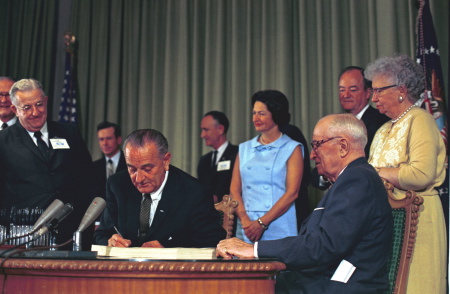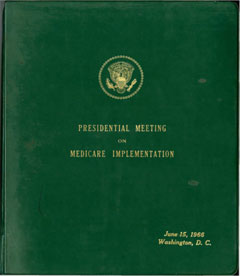 Medicare Background
Medicare Background
Since the early 1900's, proposals for a government-regulated national medical care program have been made, the focus being on the most vulnerable population-persons over the age of 65. The reason for this focus is because of this population's notably high medical expenses and low or (before the Social Security Act) no income.
One of the first working drafts of a health insurance bill was made by a committee from the American Medical Association (AMA) in collaboration with a committee from the American Association of Labor Legislation (AALL) in 1912. Some feared that Medicare might prevent future growth of "comprehensive, unified health services." Most people at the time knew that the implementation of national health care would be a difficult task, but advocates, such as the AMA, recognized that:
“Blind opposition, indignant repudiation, bitter denunciation of these laws is worse than useless; it leads nowhere and it leaves the profession in a position of helplessness as the rising tide of social development sweeps over it.” (Journal of the American Medical Association (June 9, 1917), p. 1755.)
Finally, in 1964, the Senate passed an amendment providing hospital insurance benefits for persons aged 65 and over, but not until the Johnson administration made Medicare legislation its highest priority and brought forth what was then called the Hospital Insurance proposal as the first bill introduced in the 89th congress did the implementation of national health insurance become imminent. And in 1965, both the House and the Senate accepted the bill and President Johnson signed the measure, at that time providing coverage for about 19 million people. This is where our story begins. For current news and to find out more about Medicare, visit Medicare.gov .
Charles R. Mathews Papers on Medicare Implementation
The collection consists of materials compiled by Dr. Charles R. Mathews as he attended the "Presidential Meeting on Medicare Implementation" that took place in Washington, D.C., on June 15, 1966. Included are an opening speech from President Johnson, an article by former Surgeon General William H. Stewart, and a meeting program with a list of participants.



